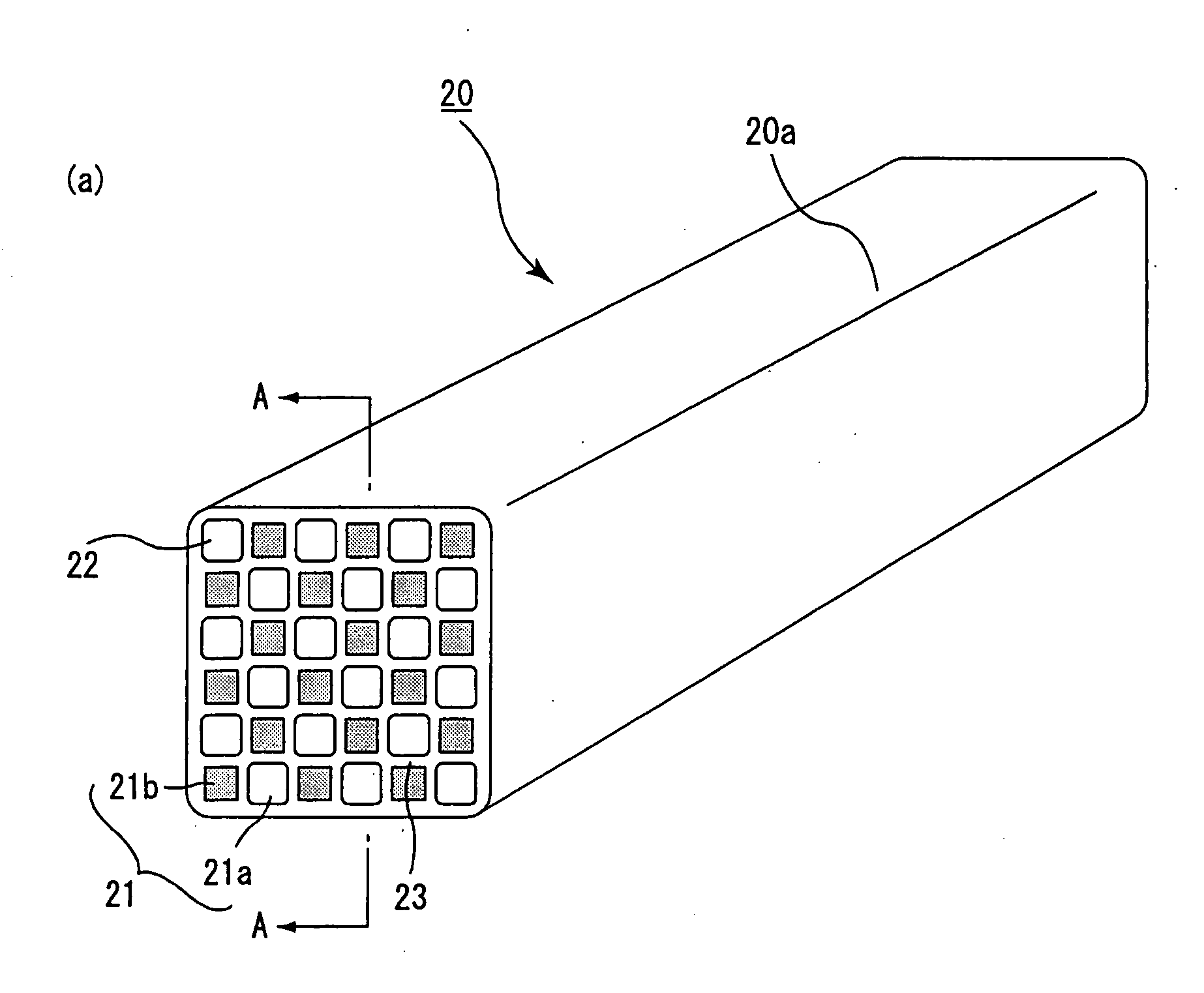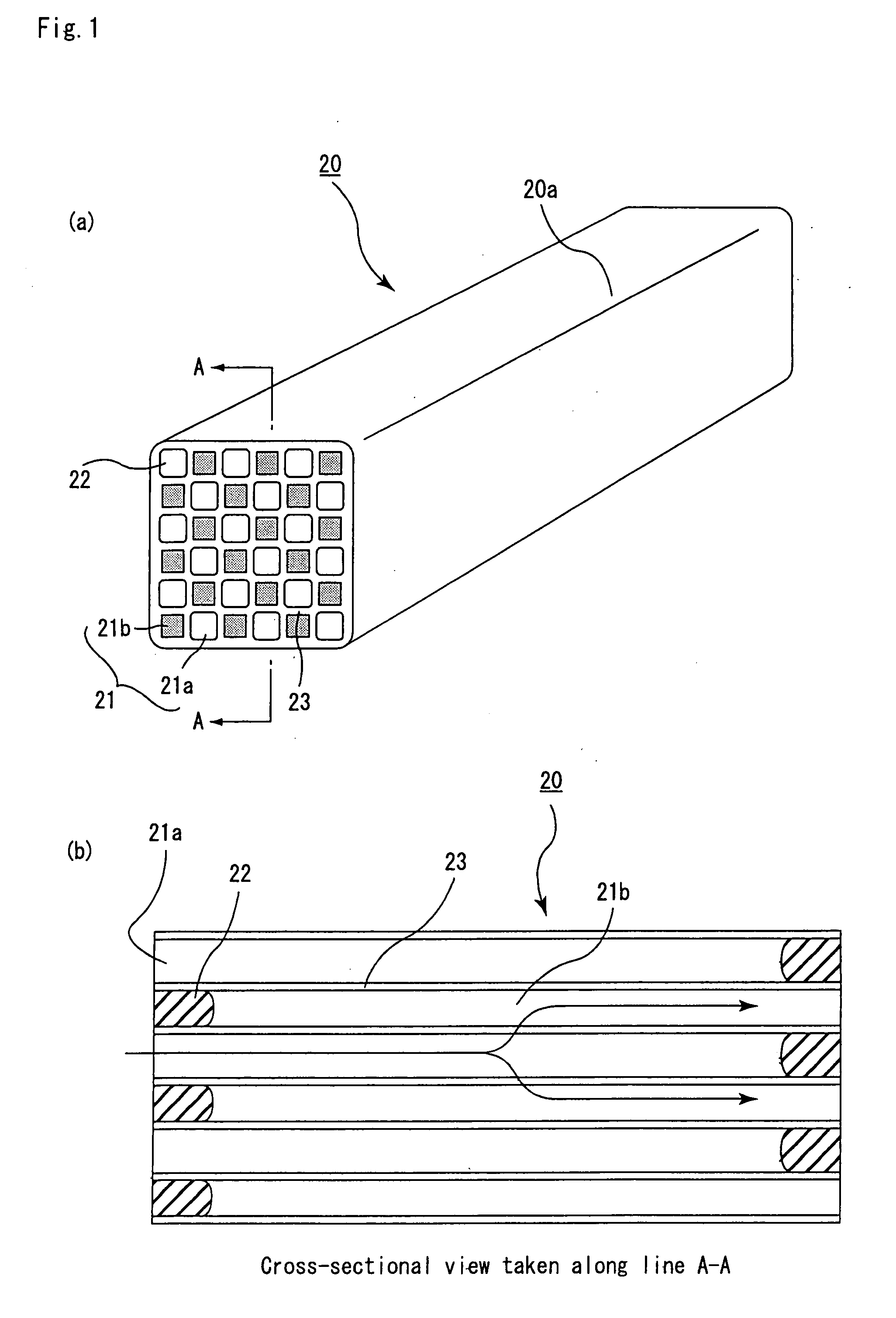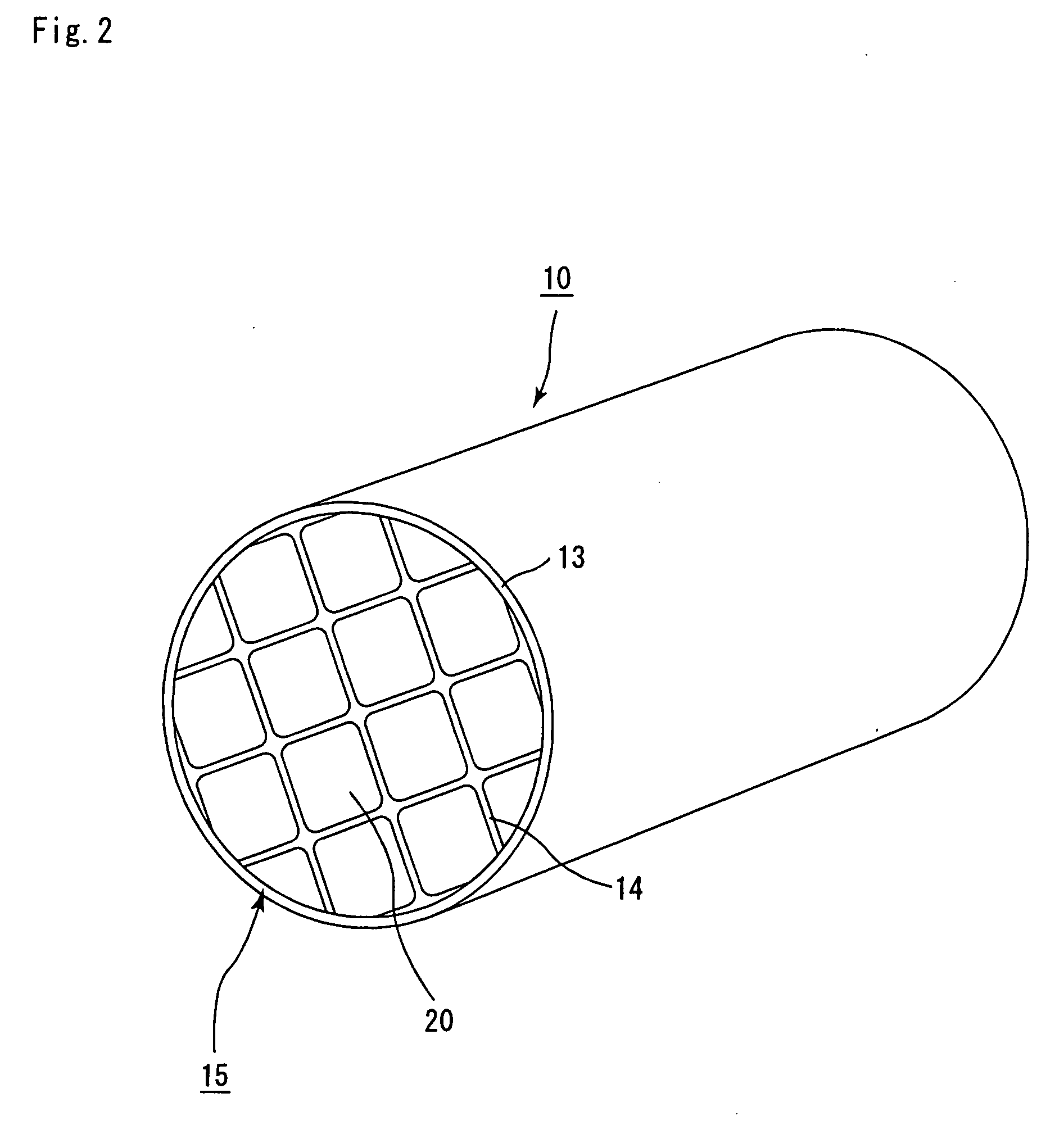Honeycomb structural body
a technology of honeycomb and structural body, applied in the field of honeycomb structural body, can solve the problems of cracks at corner portions, serious problems, contaminants harmful to the environment and the human body, etc., and achieve the effect of low pressure loss
- Summary
- Abstract
- Description
- Claims
- Application Information
AI Technical Summary
Benefits of technology
Problems solved by technology
Method used
Image
Examples
example 1
[0182] (1) Powder of α-type silicon carbide having an average particle size of 10 μm (60% by weight) and powder of β-type silicon carbide having an average particle size of 0.5 μm (40% by weight) were wet-mixed, and to 100 parts by weight of the resulting mixture were added and kneaded 5 parts by weight of an organic binder (methyl cellulose) and 10 parts by weight of water to obtain a mixed composition. Next, after a slight amount of a plasticizer and a lubricant have been added and kneaded therein, the resulting mixture was extrusion-molded so that a square columnar raw molded body, which had approximately the same cross-sectional shape as the cross-sectional shape shown in FIG. 5(b) and R-chamfered faces with an R-dimension of 0.3 mm on corner portions on the circumferential face, with four through holes located at the four corners being large-capacity through holes 21a, was manufactured.
[0183] Next, the above-mentioned raw molded body was dried by using a micro-wave drier or th...
examples 2 to 4
[0189] The same processes as Example 1 were carried out except that the R-dimension of R-chamfered faces formed on corner portions of the circumferential face of each of the integrated honeycomb structural bodies 20 was set to 0.4 mm (Example 2), 0.6 mm (Example 3) and 0.8 mm (Example 4) respectively so that the aggregate-type honeycomb structural body 10 was manufactured.
examples 5 to 8
[0190] The same processes as Examples 1 to 4 were carried out except that the extrusion-molding process was carried out by changing a die so that a raw molded body having a square column shape, which had more through holes by one row in each of longitudinal and lateral rows, with four through holes located at the four corners being constituted by two large-capacity through holes 21a and two small-capacity through holes 21b, was manufactured and that a sealing material paste was injected so that each of the large-capacity through holes 21a was sealed at the end face on the outlet side with each of the small-capacity through holes 21b being sealed at the end face on the inlet side; thus, an aggregate-type honeycomb structural body 10 was manufactured.
[0191] Here, the R-dimension of R-chamfered faces formed on corner portions of the circumferential face of each of the integrated honeycomb structural bodies 20 was set to 0.3 mm (Example 5), 0.4 mm (Example 6), 0.6 mm (Example 7) and 0....
PUM
 Login to View More
Login to View More Abstract
Description
Claims
Application Information
 Login to View More
Login to View More - R&D
- Intellectual Property
- Life Sciences
- Materials
- Tech Scout
- Unparalleled Data Quality
- Higher Quality Content
- 60% Fewer Hallucinations
Browse by: Latest US Patents, China's latest patents, Technical Efficacy Thesaurus, Application Domain, Technology Topic, Popular Technical Reports.
© 2025 PatSnap. All rights reserved.Legal|Privacy policy|Modern Slavery Act Transparency Statement|Sitemap|About US| Contact US: help@patsnap.com



